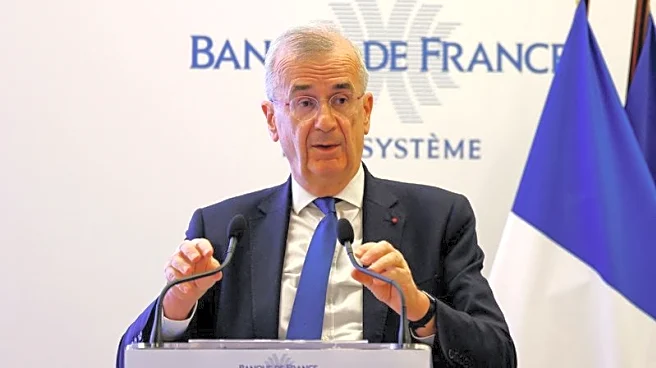Rapid Read • 8 min read
Warren Buffett, renowned for his investment acumen, has consistently avoided investing in gold despite his substantial $140 billion fortune. Buffett views gold as a non-productive asset, lacking the ability to generate value. Historically, he has maintained that gold does not align with his value investing strategy, preferring productive assets like farms and businesses. His sole gold investment was in Barrick Gold, a gold-mining company, which he exited within six months. Buffett argues that gold's value is driven by fear, with individuals acquiring it out of concern for economic instability. He believes that the price of gold is influenced by the perception that this fearful group will expand. Despite recent increases in gold prices, Buffett remains steadfast in his belief that gold is not a worthwhile investment.
AD
Buffett's stance on gold highlights a significant perspective in investment strategies, emphasizing the importance of productive assets over those driven by fear and speculation. His approach underscores a broader investment philosophy that prioritizes long-term value creation. This perspective is particularly relevant for investors seeking stable returns amidst economic uncertainties. While gold has seen price increases, Buffett's focus on assets that generate tangible returns offers a contrasting viewpoint to those who invest in gold as a hedge against economic instability. His approach may influence other investors and financial advisors, shaping investment strategies that prioritize growth and productivity over speculative assets.
As economic conditions evolve, the debate over gold versus productive assets is likely to continue. Investors may reassess their portfolios in light of Buffett's insights, considering the balance between risk and return. The ongoing economic challenges, including currency fluctuations and geopolitical tensions, may further impact gold prices and investor sentiment. Financial advisors and market analysts will likely continue to evaluate the role of gold in diversified portfolios, weighing its historical performance against other investment opportunities. Buffett's perspective may prompt discussions on the long-term viability of gold as an investment, influencing future market trends.
Buffett's investment philosophy raises ethical and strategic considerations about the role of fear in financial decision-making. His emphasis on productive assets challenges the notion of investing based on fear-driven market movements. This perspective encourages investors to focus on sustainable growth and value creation, rather than short-term gains driven by market volatility. Additionally, Buffett's approach may inspire discussions on the ethical implications of investment strategies that capitalize on economic fears, prompting a reevaluation of how investors approach risk management and asset allocation.
AD
More Stories You Might Enjoy














